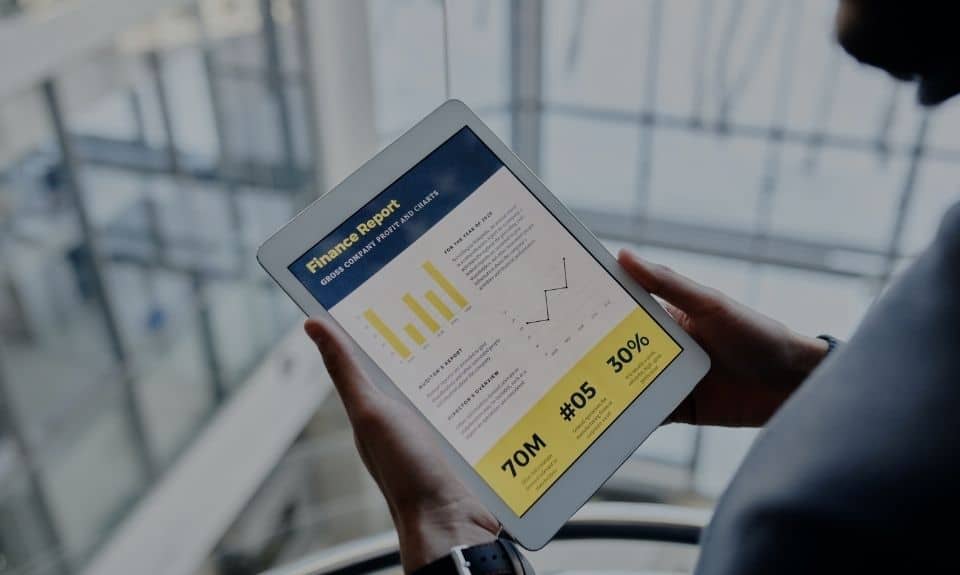How Virtual CFOs Can Leverage RPA Software to Automate Small Business
The overarching purpose of Robotic Process Automation (RPA) is to automate manual, repetitive, and low-value tasks. Implementing RPA software and systems can streamline a business’s day-today operations, giving back valuable hours to business owners, and enable key staff to work on more high-priority initiatives that are frequently put on hold due to the inability of resources to keep up with the pace of manual work. Some examples how RPA is used by SMBs:
- Entering sales orders,
- Account reconciliation
- Managing vendors,
- Generating purchase orders,
- Creating and following-up invoices,
- Generating financial reports, and much more
Promote Financial Data Accuracy
There are a lot of monotonous tasks in an accounting or finance function (such copying and pasting data across spreadsheets), and plethora of financial reports to create which – if done incorrectly – can lead to potentially huge impacts on the financial position of a business with massive consequences. Companies lose millions annually due to poor data quality because workers must adjust to inaccurate information and create workarounds. The effects of poor data quality may be felt throughout an organisation, forcing systems that rely on that data to change as a result. When a vendor’s information is not entered in a standard format, it can lead to extra work in other areas, such as purchasing, invoicing, payments, and reporting. Data quality may be ensured at the time of data gathering by using RPA to standardise data entry and check data.
Improve Productivity and Reducing Operating Costs
Virtual CFOs continually seeking to streamline and improve the efficiency of finance and accounting activities for small businesses, so that business owners can focus more on growth opportunities and gaining a competitive advantage in the market. Streamlining operations increases a business’s responsiveness to change, allowing it to quickly spot competitive disruptions and market changes, then respond and navigate to meet customer needs and profit target.
RPA for Growth and Scale
RPA implementations and optimisations of growing businesses typically start in the financial and accounting teams – where automating routine tasks frees up finance departments to focus on strategic initiatives and gives a CFO the operational flexibility to scale or pivot as needed. The CFO is elevated to the role of strategic business partner than a traditional accountant – this is why a Virtual CFO is a critical role for small businesses without an in-house finance team.
Improving the Value of Key Performance Indicators (KPIs)
The lack of numbers to support where staff spend their time, processing times, and volumes is a common problem we encounter when automating finance and accounting departments. With RPA in place, businesses can examine employee time utilisation in great detail. Because of the many flaws inherent in manual business processes, we reengineer them for automation in order to make them more effective and efficient.
RPA also offers monitoring of process metrics such as throughput, cycle time, cost, and exceptions. However, knowing how well processes are being conducted through operational data is necessary for isolating and evaluating exceptions, which may lead to additional improvements in process efficiency.
Speak with Philip Khao from Solve Accounting on 0412651779 or at philip@solveaccounting.com.au to find out more about your potential business opportunity.
Philip Khao is a Chartered Accountant (CA), Virtual CFO professional and Director at Solve Accounting with many years of accounting and business services experience at global accounting firms and multinational corporations.
Automation and Artificial Intelligence
Automation is essential for future-proofing your business since it can lead to significant cost savings over time, uplift productivity, and greater strategic management through access to real-time business data and financial insights. Artificial intelligence or “AI” plays an integral part in revolutionising the way organisations work in areas such as logistics and customer service.
Currently, AI may appear to be something only giant corporations use, but we will now see more and more extensive utilisation by SMBs, where “AI will help small businesses offer more personalised experiences to their customers by maximising their time and automating manual tasks…” according to Meredith Schmidt, an Executive Vice President and General Manager of Small Business and Essentials at Salesforce (a cloud-based CRM platform focused on sales, customer service, marketing automation, analytics, and application development).
From natural language processing (converting voice to text without the need of a typist or admin staff) to process automation (such as instant filing and sorting of emails, orders, invoices, and every type of document under the sun), these are just a few examples of the way automation can be used by small business.
As more businesses of all sizes embrace apps such as AI-powered chatbots for tailored customer experiences and AI-infused Customer Relationship Management (CRM) systems (instead of, for example, tracking all your customers manually in a spreadsheet), it is important for business owners to stay ahead of the curve.
“If you are spending almost a quarter of your day on manual tasks, like inputting data, as our research showed, AI and automation can be a huge asset…”
According to Salesforce, 55% of small businesses state “lack of time” as a major concern to them. As we now know that using AI enabled technology solutions can help organisations save time by automating repetitive, manual tasks, AI is well-positioned as a current innovative technology that small business owners in every industry can use to streamline their daily tasks and operations to become more efficient and gain a competitive advantage over their competitors.
Speak with Philip Khao from Solve Accounting on 0412651779 or at philip@solveaccounting.com.au to find out more about your potential business opportunity.
Philip Khao is a Chartered Accountant (CA), Virtual CFO professional and Director at Solve Accounting with many years of accounting and business services experience at global accounting firms and multinational corporations.
Virtual CFOs as a Trusted Business Advisor in the Digital World
The conventional elements of an accountant’s profession are enhanced in the world of COVID-19 by the transformative changes they can accomplish for clients. Cash flow projections for the next 6-12 months are important, but so is the guidance an accountant can provide on optimising an organisation’s current forecast. Uncovering business insights and unlocking knowledge is merely the beginning for the modern accountant – the other part of the picture is proving a consultative, strategic view on what can be done next.
The modern accountant (commonly also referred to as a “Virtual CFO”) plays a more business advisory role for SMBs; rather than just solely a bookkeeper or tax manager as traditional thought. In the corporate world, accountants are no longer just “bean counters”, crunching numbers in the back but part of the wider strategic development areas within any organisation and able to add value to the business.
Virtual CFOs have an entrepreneurial mindset to achieve this strategic view and are forward looking vs the traditional accountants who are backwards looking i.e. after the fact where no value can be added
Not only can Virtual CFOs advise customers on how to tackle present issues, but also advise them on how to innovate in order to develop new income streams in the future. Part of this entails the willingness of new modern accountants – as trusted advisors – to push themselves to innovate themselves, develop the skills and expertise outside of financials. To complement this, many accounting firms are investing in the skills and technology required to meet the fresh demands of business advisory and consulting, such as the ability to advise on and implement new suitable accounting software and financial management technologies.
Virtual CFOs are typically equipped to advise their clients on transformation and support them through the change process due to their background knowledge of their customers’ finances. This, however, necessitates a more imaginative accounting model that is prepared to incorporate cutting-edge technology as part of the overall business strategy.
Accounting has always been seen as one of the critical building blocks of every successful company. Now, accountants are frequently involved in managing significant business challenges and advocating for growth within many organisations; with many in charge of these companies generally regarding accountants as equals in the bigger strategic view – rather than just a source of financial information.
With the constant advancement of technology, changes in consumer and company needs, and regular regulatory revisions, the accounting industry is likely to experience even more developments in the years ahead.
Every business owner who aspires to thrive in today’s highly competitive economic climate must decisively seek out a truthful, knowledgeable, dependable Virtual CFO who is well equipped to manage with and consult across a wide range of business operations and issues, tailing their advisory services to the specific, unique requirements of every organisation – both big and small.
Speak with Philip Khao from Solve Accounting on 0412651779 or at philip@solveaccounting.com.au to find out more about your potential business opportunity.
Philip Khao is a Chartered Accountant (CA), Virtual CFO professional and Director at Solve Accounting with many years of accounting and business services experience at global accounting firms and multinational corporations.
Overcoming the Idea That “Change = Bad”
One thing many of my small business clients know and accept is they realise that there are better ways and methods to accomplish their day-to-day and yet believe it is “too difficult” or “too much effort” to change (as we are creatures of habit, and it is a basic human instinct to be resistant to change).
As a general example from years as a business adviser, a statement I hear all too often is: “I’m so busy” (more on this topic under the “Automation and Artificial Intelligence” section below). There’s nothing inherently wrong about that statement, as I’ve seen it time and time again across every industry and business type: you could be a tradie, a director in a start-up, or even run a local “mum and dad” small business – that feeling of being constantly on the go.
If you find yourself always on the phone or in meetings, busy coordinating with staff, suppliers, contractors, and then attempting to balance your personal life in-between, the notion of being “too busy” to think of anything more can be daunting. Finding yourself a good business adviser (such as a Virtual CFO or accountant) can provide you with the expert knowledge and experience to simplify the complex and take you in the right direction for change.
The Modern Accountant as an “Agent of Change” – Not Just Taxes and Numbers
The distinction between a business advisor and a typical accountant has become increasingly blurred over the last three decades, with over 82% of accountants reporting in the last year that their clients demanded a “broader” service offering, including business and technology implementation guidance. This transformation has only been intensified in the current climate of remote working.
The Accountant as a Business Strategist and Tech Guru
To solve these new and complex problems in an ever-changing world, there is an expectation for accounting firms to promote new and more efficient ways of working (which incorporates technology and change) – both internally and with their clients. As such, many “accounting” firms (from your local practices such as Solve Accounting to your mid-tier and big 4 accounting firms) have supplemented their traditional audit, tax, compliance and financial reporting service offerings with business advisory, technology, and management consulting. To do this, modern accountants are trained to move quickly and efficiently, with a firm grounding in technology, business acumen, and data analysis.
Businesses of all sizes are increasingly expecting their accountants to play a more active role in change management and cash flow forecasting months into the future. This enables businesses to address day-to-day difficulties while keeping an eye on what the post-COVID world will look like and the help they will require to recover and to succeed.
Speak with Philip Khao from Solve Accounting on 0412651779 or at philip@solveaccounting.com.au to find out more about your potential business opportunity.
Philip Khao is a Chartered Accountant (CA), Virtual CFO professional and Director at Solve Accounting with many years of accounting and business services experience at global accounting firms and multinational corporations.
What Does “Innovation” Mean to a Small Business?
When someone typically hears the word “innovation”, many may instantly disregard it as a corporate buzzword or think of something traditionally done by big organisations (for example massive multinational corporations or enterprise-level companies), yet many growth-focused small businesses are making great use of the new tools and technologies out there to revolutionise the way they interact with their customers and streamline their day-to-day operations for the better – through digital transformation.
Some ways SMBs are implementing new and innovative ways of working and creating deeper relationships with their customers:
Small Business-centric Customer Relationship Management (CRM) Systems
CRM software has been around for decades for big business, and can be used to track sales, manage client information, evaluate data trends, generate reports and more.
In recent years, an increasing number of CRM solutions that cater exclusively to the needs of small businesses have arisen. These tools are affordable, user-friendly, and packed with capabilities. In addition, they can interface with practically every component of a company’s existing software (or “tech stack”) such as your website, email, social media platforms, and more.
Artificial intelligence (AI) and Machine Learning (ML)
The words “artificial intelligence” and “machine learning” may be confronting or even scary to some. Even though the ideas behind these technological advancements are relatively new and somewhat complex, that doesn’t mean that small businesses can’t benefit from them.
AI makes it possible for business owners to set up autonomous systems that can improve many customer-facing and internal processes. Some of the benefits are better customer journeys, efficient employee management, automatic data synchronisation between software, and more. ML adds an additional layer of automation that can save you and your staff many hours a week tweaking your software to suit your unique business needs, as it learns on-the-go.
Robotic Process Automation (RPA)
Employees in small businesses typically spend hours per week on simple (and sometimes mundane) yet crucially important everyday activities. This might involve admin work, scheduling appointments, customer service and support, and many other repetitive tasks. RPA is typically quick to implement in most businesses and can be leveraged to expedite digital transformation. It’s also great for automating operations using legacy systems that don’t have APIs, virtual desktop infrastructures (VDIs), or database access.
Out-of-the-box workflow automation tools and software have empowered small enterprises to benefit from these new technologies even without in-house knowledge and relatively low investment costs. Leveraging external experts such as Virtual CFOs and small business consultants to complete all the technical implementation work and train staff with the new systems and processes ensures your new “tech stack” us set up for success.
Finance and Accounting Business Process Outsourcing (F&A BPO)
Outsourcing a business function to a third party rather than hiring a full-time person or team is known as Business Process Outsourcing (BPO). Finance and accounting are functions which a third-party specialist (such as a Virtual CFO) takes over one or more financial activities of a business, such as: management of cash and other assets, payroll, taxes, and shareholder or board reporting.
Through the implementation of a data-driven, intelligent operating model, a Virtual CFO can help you in transforming your finance operations from a transactional service into a strategic asset.
Small and medium businesses (and their owners) value simplicity above all else when planning for the future. Aside from pricing, the most significant requirements for new technology are ease of use, the convenience of setup, and simplicity of maintenance.
When it comes to considering new technology for their business, three-quarters of SMB owners and leaders (74%) think scalability is “extremely, very, or somewhat” mission-critical to the future success of their business. 58% SMBs prefer to deploy solutions that will fulfil their long-term needs than to implement solutions that would only address their company’s current demands.
In other instances, you may need to make new and somewhat drastic changes in the way that you operate to take advantage of these tech-friendly solutions. The good news is that once new processes are in place, the benefits frequently outweigh the short-term obstacles (and cost considerations) of the initial, transitional phase.
Whether you are a start-up in search of that next big jump or an established small business seeking opportunities to grow, understanding the trends of technology for small businesses in 2022 is vital for your next strategic move. Small business owners can leverage technology to make better use of their limited capital. In many cases, adopting a new platform or system can improve efficiency and flexibility in your everyday operations, a natural progression in the uplift of processes you may already have in place.
Speak with Philip Khao from Solve Accounting on 0412651779 or at philip@solveaccounting.com.au to find out more about your potential business opportunity.
Philip Khao is a Chartered Accountant (CA), Virtual CFO professional and Director at Solve Accounting with many years of accounting and business services experience at global accounting firms and multinational corporations.
10 ideas small business owners should focus on to systemise themselves out of their business
In the ever-changing world of this digital age, many sole traders and small & medium businesses (SMBs) can feel overwhelmed or left behind by the sheer amount of choice across the many types of apps, software, and systems available.
Although the thought of getting up to speed may be daunting for some, this feeling can be readily overcome by understanding the possibilities, opportunities, and positive impacts that investment technological innovation and integration can bring to your business. Taking advantage of these opportunities makes it is possible to set your business apart from the competition with the introduction and acceptance of these new and “innovative” ways of working.
All business owners – regardless of size and industry – can benefit from better use of their time by reviewing what manual procedures can either be improved or eliminated altogether with the implementation of new systems and processes.
Just imagine, all these common pain points found across all types of business (which generally involves a lot of double handling or redundancy) can be addressed, such as:
- onboarding new clients and customers,
- reducing general administrative tasks and automating repetitive tasks.
- automating financial systems,
- automating financial reporting,
- streamlining everyday operations,
- systemising compliance,
- using a CRM
- using Bots
- using IOT to review data and make decisions
- using Virtual C suites services
How many of the above 10 pain points do you have within your growing business? Now, you don’t merely have to “imagine” this future – as it’s all already being done today. Make an effort to speak to your trusted advisor and ask them how they can help with systemising you out of your business.
Speak with Philip Khao from Solve Accounting on 0412651779 or at philip@solveaccounting.com.au to find out more about Virtual CFO services.
Philip Khao is a Chartered Accountant (CA), Virtual CFO professional and Director at Solve Accounting with many years of accounting and business services experience at global accounting firms and multinational corporations.
6 Key Factors to Ensure Your Business Has Financial Control
It’s easy to become complacent and overlook key warning signs if you’re not watching business metrics meant to draw attention to the performance indicators of your organisation. Here are six (6) key points we go through with every one of our clients:
1) “Do it right the first time so you don’t have to do it again”. Tempted to take a shortcut with your financial controls? This can and will come back to bite you in the near future, such as at tax time or when you are looking for business financing options.
- Remember: your business is your livelihood, and its revenue is your bread and butter. Data should be input as soon as possible and as correctly as possible; trying to memorise facts and figures about the performance of your business is completely ineffective and risky.
- Being cautious from the outset will save you the hassle and frustration later on – which brings us to our next point…
2) Do you mix personal and business expenses and/or assets? Accurate financial control and effective budgeting are practically impossible if it is unclear where the money originated from or if it was spent for personal or business purposes.
3) Do you re-invest earnings into your business? Why/why not? You will need to invest in your business, no matter how big or small, to see it expand. It is up to you to ensure that such contributions and made to help your business thrive.
- Improve efficiency by going digital, enhance production by modernising your workspace, and manufacture better quality products by purchasing higher-quality supplies.
- Whatever steps you take, make sure they are worthwhile. Always think about what you need and invest wisely.
4) Do you know if your invoices are being sent out as quickly and accurately as possible? When was the last time you performed an invoice audit to ensure invoice accuracy?
- It’s important to frequently evaluate stock levels and reconcile debtors, GST, and fixed assets.
5) Are all product and service lines contributing their full value to the bottom line? Your existing reports may not provide complete visibility into your margins.
6) When was the last time you set business goals? How do you know you’re moving in the right direction?
- Always be aware of where you stand – and how you intend to achieve your business goals.
- Updating broad financial performance targets every year, monitoring performance versus budget, comparing inflows and expenditure of cash, and creating profit and loss reports are all activities that will keep you aware and on target.
In Summary
One of the most crucial roles of small business owners is financial control and financial management. As a director or sole proprietor, you must assess the possible effects of your financial controls and their impacts on income, profitability cash flow, and the company’s financial health. If you do not have the time or experience to properly manage your business finances and set up proper financial controls to ensure the financial health of your business, a virtual CFO may be the perfect solution for you.
Speak with Philip Khao from Solve Accounting on 0412651779 or at philip@solveaccounting.com.au to find out more about Virtual CFO services.
Philip Khao is a Chartered Accountant (CA), Virtual CFO professional and Director at Solve Accounting with many years of accounting and business services experience at global accounting firms and multinational corporations.
The Importance of Financial Control
When you operate a small business, every dollar counts – and every dollar must be tracked, monitored, and managed accurately and properly.
You work hard to ensure that your business runs smoothly and successfully and having good financial management and financial control is an important step towards continued growth.
The Difference Between “Having Control” and “Being in Control” of Your Business Finances
It is normal for a sole trader or small business owner to be reluctant to hand over control of finances to someone else, whether that someone is an external accountant or bookkeeper. Or you may already even rely on your admin staff or an in-house accounts person to file taxes, send invoices on time, and do a good job with outstanding payments. It may be the cost or even the trust factor which creates that initial hesitation of letting a total stranger manage your hard-earned cash – how can you be sure that person is doing the right thing? The answer: financial controls.
Without a doubt, you may be great at what you do as a sole trader or small business owner (whether you are a tradie, contractor, start-up, online e-commerce business or any type of small business for that matter) – but the undeniable truth of the matter is this: without the proper background and experience in accounting and financial management, you will never know if your financial reports are truly accurate or lacking in vital information about your businesses’ health.
Taking a step back and being honest with yourself about how your business’s finances are managed is important. Are you confident that you have processes and procedures in place – the “financial controls” which we’ve referred to – to ensure your income and spending is effectively managed? Without adequate financial controls, your business can be vulnerable to such things as employee fraud, cash flow problems, and even bankruptcy.
The Importance of Financial Controls for BOTH Start-Ups and Mature Small Businesses Alike
As a Start-Up
During the early phases, most businesses incur losses and have negative cash flows. During this period, financial management is critical. Directors and/or Business Owners must ensure that they have adequate cash on hand to pay staff and suppliers, even if the organisation is losing money. This means that the owner must make accurate financial projections of these negative cash flows to determine how much money will be required to support the business until it becomes profitable.
As a Growing Business or “Mature” Small Business
As a company develops and matures (no matter how long it’s been around). it will require more cash to fund its expansion. It is critical to plan for and budget for these financial requirements. Having the right finance professional is important in this stage, to guide you through potential roadblocks to growth and provide you with the information and knowledge on how to make the best decision on whether to fund expansion internally (bring in more business partners or potential investors) or take out a loan from external lenders. Financial management (which includes financial controls) covers the ability to find the most cost-effective source of finance for growth, monitor the business’s cost of capital, and prevent the balance sheet from being overly burdened with debt, which can harm the business’s credit rating.
Solve Accounting – Your Trusted Financial Controls Adviser
A Virtual CFO has the skills of a professional accountant and financial controller, without the need to hire extra staff. They can provide you with the advice to set up adequate financial controls and can help you better manage your cash flow, reduce operating costs, and identify growth opportunities – working with you to better understand your business’s finances.
Speak with Philip Khao from Solve Accounting on 0412651779 or at philip@solveaccounting.com.au to find out more about Virtual CFO services.
Philip Khao is a Chartered Accountant (CA), Virtual CFO professional and Director at Solve Accounting with many years of accounting and business services experience at global accounting firms and multinational corporations.
Four Key Areas Where a Virtual CFO Can Help Businesses of ALL Sizes
1. Financial Management for Success
Many small and medium-sized business owners lack the financial skills and/or time required to maintain and expand their businesses. SMEs require the assistance of a knowledgeable and trusted advisor to steer them to success. For the most part, virtual CFO services are relatively inexpensive – especially taking into consideration the technical financial know-how which a business owner would not typically have (remembering outsourced CFOs are fully qualified accountants with many years of experience in public accounting).
Through my years working in public accounting in Australia at a global firm, and overseas in the UK as a financial controller for large, multinational corporations, I truly believe a Virtual CFO service should be a mandatory function for all SMEs to instil strong financial control, financial literacy, and financial management within all aspects of the business’s operations. With this, I also believe that the SME failure rate will likely decrease as a result.
2. Businesses that have outgrown their accountant
Many businesses have accountants; some have traditional accountants only see once a quarter/year – after the period – only real tax advice provided is how much tax to pay and when to pay it as it is after the fact. Having a Virtual CFO will mean you will have a finger on the pulse with regards to numbers, cash flow, tax liability and retained profits at a particular point in time to facilitate better decision making.
3. A Mindset Shift for Growth
Business owners need to move away from the standard owner-operator mindset to scale their business operations and grow. Adopting an owner mindset is easier said than done, which is why a business adviser and consultant such as a Virtual CFO can guide you on this transformative journey. Since technology can make compliance less of a problem through a good step-up and monitoring (governance and controls), a virtual CFO can set things up in best practice from the start or identify defective or deficient areas of the business controls and management where errors and oversight may be costly.
4. Strategic Thinking and Goal-Setting – Managing Your Business Like an Enterprise
We all must start somewhere, setting goals for your business is just the beginning as the adage goes, “a goal without a plan is merely just a wish”. From corporate governance to business management strategy and operational excellence – setting goals, targets, KPIs, and benchmarks for the coming year to improve on are just a handful of the things a Virtual CFO can do for you. If you’re not looking at the numbers regularly, and you don’t know how your organisation is tracking then how are you going to plan for the future? For most businesses, doing better than the previous years is a solid goal to follow – but how exactly are you going to do that?
Speak with Phil Khao from Solve Accounting on 0412651779 or at philip@solveaccounting.com.au to find out more about Virtual CFO services.
Phil Khao is a Chartered Accountant (CA), Virtual CFO professional and Director at Solve Accounting with many years of accounting and business services experience at global accounting firms and multinational corporations.
“My business is too small to need a CFO!” - A Common Misconception
As an accounting professional, I’m here to provide clarity on the misconception of CFOs only being for big corporations and banks. A “CFO” in this context should be thought of as a business consultant or adviser. It’s fully accepted that many small businesses can’t afford full-time CFO/C-suite and continue with this thinking that Virtual CFO’s will be too expensive, or they’re too tiny of an operation for it to matter.
The advantage here is that you can outsource your financial management to a local accounting firm (such as Solve Accounting) to receive the right advice; with no need to hire, manage, or train an in-house finance manager. The concept of a virtual CFO is a relatively new way of working which has been made possible through development and innovation of technology freeing up time for accountants to focus on providing advice and delivering value. With a virtual CFO, you have access to everything a CFO can do, but only to the extent which you require.
So, What Will You Actually Do for My Business as a Virtual CFO?
A CFO oversees all financial matters in your organisation. From a managerial standpoint, the CFO typically manages the teams in charge of operational matters such as keeping accurate, timely accounts and ensuring you meet your tax obligations and financial goals. On the strategic side, your CFO will monitor the company’s performance and provide advice to help your company meet its business goals.
As your virtual CFO, we handle all financial matters of the business to instil financial control, ensure we have a finger on the pulse when it comes to the numbers, and openly share our findings and advice with you. Services we provide and assist with include but are not limited to:
- Goals setting & implementing business strategies
- Cash flow management, budgeting, and forecasting
- Financial reporting & advisory
- Monthly performance & accountability meetings
- Systems and business process audits, including business automation services and technology
- Provide advice to improve your financial position
- Provide access to our professional network
A Virtual CFO would perform the same strategic function, but rather than joining your business as a company director, they will operate on a contractual basis with your organisation. Virtual CFO services (also known as fractional CFO or outsourced CFO services) are accessible on an affordable hourly or monthly subscription basis.
Final Thought
A “virtual CFO” or an “outsourced CFO” may be one of the most valuable assets to a small firm since it eliminates the need for extra staff while still providing all the benefits of someone with that level of financial expertise. I would love to see the government make a Virtual CFO a compulsory requirement for all business owners to have before opening their small business.
Speak with Phil Khao from Solve Accounting on 0412651779 or at philip@solveaccounting.com.au to find out more about Virtual CFO services.
Phil Khao is a Chartered Accountant (CA), Virtual CFO professional and Director at Solve Accounting with many years of accounting and business services experience at global accounting firms and multinational corporations.











